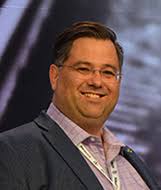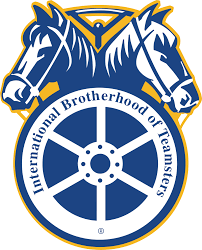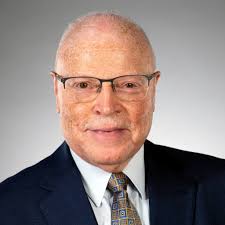With momentum building for high-speed rail in the U.S., organized labor has taken on a key role in pushing forward planning of projects in various stages across the country. Of the labor coalition that has risen to the task of developing this new form of transit, the Brotherhood of Maintenance of Way Employes (BMWED) has emerged as one of the foremost unions on this new horizon.
The maintenance worker union, along with the Brotherhood of Railroad Signalmen (BRS), spearheaded the labor agreement to build and maintain the Brightline West project, America’s first “true” high-speed rail system, which will connect Las Vegas and the greater Los Angeles area. The agreement secured a commitment from Brightline to use craft rail unions and highly skilled union labor in the jobs required to operate and maintain the project.
LaborPress recently interviewed BWME’s national President Tony Cardwell about his thoughts on high-speed rail and the behind-the-scenes work that his members do to keep passenger rail running safely. The union, which builds and maintains the tracks, bridges, buildings and other structures, has a big stake in the future of high-speed rail.
“I believe that we are the most appropriate union to have the strongest opinion on this. That is because we and the BRS started the negotiations with Brightline West ourselves,” Cardwell told LaborPress.
Carwell said that BMWED is uniquely positioned to usher in new high-speed rail projects because it is one of the largest groups in the passenger rail industry. Cardwell estimated that BMWED workers make up about 30 percent of Amtrak’s union membership nationwide. Large-scale high-speed rail projects present an enormous opportunity for the union to train and add more members in an already union-dense industry.
For carriers like Brightline looking to secure public funding for ambitious projects, the union’s political connections are a boon. Government funding is a bread-and-butter issue for the union to assure that the rail carriers are employing a necessary level of maintenance workers to keep tracks functioning.
“We knew we could reach in and help raise some of that funding and get these initiatives that had been trying to do for years off the ground, but we weren’t gonna do it for free. We wanted assurances that the carriers would allow card-check in union recognition,” Cardwell said.
Beyond the work of coalition building, Cardwell spoke about how unions have a fundamental role to play in ensuring that high-speed rail has the bright future that its advocates are hoping for. He’s not just negotiating for his members, he’s negotiating to ensure that the trains are built with a level of skill and expertise that will create a solid reputation among passengers.
“Our high speed rail has the best chance of succeeding in America without blunders and failures and derailments and things of that nature,” he said.
That’s where maintenance workers come in. On the passenger side, BMWED’s members work on the catenary or third rail — the electrification system — on the tracks or in the wiring overhead. And they maintain tunnels, bridges and road crossings — the signage and passageways that allow trains to run smoothly.
The labor agreement for Brightline West ensures that when the trade unions are done building the new rail lines, BWME members will be the ones that come in and maintain them to keep them operational.
Cardwell argued that union expertise is of utmost importance because “you’re establishing a whole new class of railroad here,” where “as track speed increases, you have stricter rules and policies. You have less leniency.” So while the maintenance workers may not start their jobs until the track has finished construction several years from now, the union has to be present throughout the process to create training materials on the specifications of the rail system and create an operational plan.
“The first people that get on those trains before the Olympics to travel between LA and Vegas are gonna be blown away. And I believe that people are gonna realize that this investment should have happened a long time ago,” Cardwell said.






